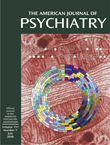Sibling Correlation of Deficit Syndrome in the Irish Study of High-Density Schizophrenia Families
Abstract
OBJECTIVE: The deficit syndrome is a subtype of schizophrenia characterized by primary and enduring negative features of psychopathology. It appears to reflect a distinct subtype within the syndrome of schizophrenia. Little is known about the familial or genetic aspects of the deficit syndrome. The purpose of this study was to determine whether deficit versus nondeficit subtypes are correlated in sibling pairs affected with schizophrenia.METHOD: The present study was based on the Irish Study of High-Density Schizophrenia Families. From the earlier study the authors selected a subset of patients who were members of sibling pairs in which both siblings had been diagnosed with “core” schizophrenia, which included schizophrenia, simple schizophrenia, and schizoaffective disorder with poor outcome. The Schedule for the Deficit Syndrome was used to make deficit versus nondeficit diagnoses, which were based on chart examinations by reviewers blind to sibling status. This method resulted in 65 patients being diagnosed with the deficit syndrome and 401 patients diagnosed as nondeficit (prevalence=13.9%). This group included 347 full sibling pairs, which were analyzed for resemblance with respect to deficit versus nondeficit subtype by means of logistic regression.RESULTS: Deficit versus nondeficit subtypes were significantly correlated in sibling pairs concordant for core schizophrenia.CONCLUSIONS: Familial factors contribute significantly to whether a person has the deficit subtype of schizophrenia. This familial contribution could be genetic or environmental.



